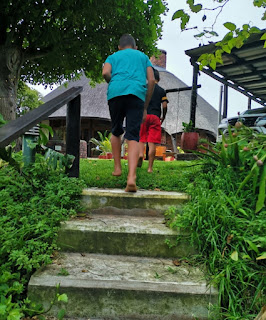End of year progress assessments can cause a lot of stress. This is true for us as teachers, who are trying to give parents a true, but kind reflection of their child’s progress, based on how we have experienced it in our classroom during their school year. It is also true for us as parents, who receive the final assessment feedback, whether with fear, shock or excitement and (definitely not least) for our children, for whom it can be a cause of stress, heart break or celebration.
Assessments, whether formal or informal, provide us with an important opportunity to help teachers and parents see where a child’s individual needs or lack of development are and can help us to focus on how we can develop a child’s strengths or assist them in areas where they are struggling. However, it is important to keep in mind that standard assessments are usually inspired by milestones of a specific age and reflects what around 90% of children are able to achieve at that specific age. In reality, children do not all progress at the same pace and therefore allowance should be made for a grace period of 6-9 months for other children to reach these specific milestones too.
All young children are in different stages of their brain development. With every experience our brains make a connection and the more that connection is repeated, the stronger it becomes. When not repeated, it will fade away. It’s the same when we walk through a forest. If we follow the same route every day, we eventually have a natural path visible for all to see. That is why it is important to practice skills regularly. Simplified, our brain consists of two main skill areas, the first one contains the basic skills for living and survival (e.g. fight or flight) and for young children this is generally driven by instinct. The second area consists of our emotions, thoughts, communication skills and how we learn, which is part of our personality and characteristics and is DNA inspired too.
Our very young children’s brain development starts with copying everything and everyone in their environment, but in time they become independent from us and start to discover and interpret their world on their own. During this incredible and rich development journey our small children are sometimes reaching their milestones fast, sometimes according to the books, but always at their own pace. And in this, we as adults, need to give them their space to develop and the confidence to believe in themselves and follow their own path. Yes, it is true that sometimes we as parents need to ask and accept the help from specialists, like Speech therapists, Occupational therapists or Play therapists, when our children’s pathways might have taken a detour into a cul-de-sac, where they got a bit stuck, but with a little help, our children can move out of the cul-de-sac and back onto their own path again.
When you as a parent look at the report or assessment feedback for your child, focus on their strengths and encourage them by creating opportunities for them to excel even more at it. Also work at the areas where they seem to have challenges, because if you just ignore it, they might fall behind even more and this can later shake their confidence to such an extent that it also diminishes their strengths.
Teachers, when you hand us parents that report, please know, that we take everything that is in it to heart, even if we don’t say it. Please don’t take any of our reactions personally, because often our reactions are just a reflection of our own fears and guilt.
And parents, when you look at your child’s report, please know that most of us as teachers, who put in so much hard work, thought and love into your child’s progress, are proud with you and we hope that, no matter what the content, you will celebrate your child’s report and remember that assessments do not define your child. It is merely a reflection of one small part of them.








